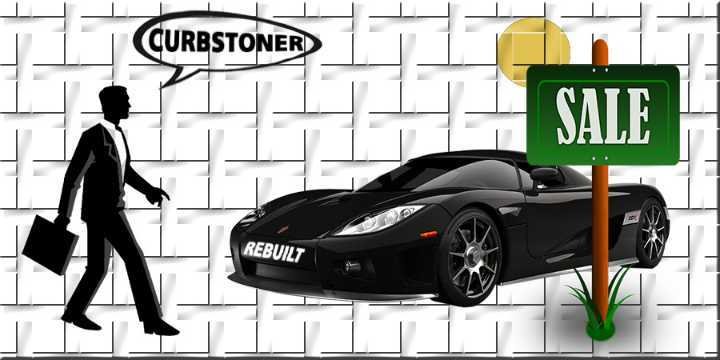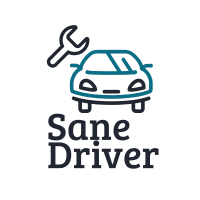What is Curbstoning: How Not to be a Victim
Curbstoning is when an unlicensed dealer sells a used car while pretending to be a private party to avoid the regulation such as inspecting the car, paying taxes, and registration fees. A curbstoner could sell vehicles declared salvaged by insurance companies or involved in a flood to unsuspecting buyers and get away with it. Though it is an illegal act, an alarming number of persons fall victims yearly.

A typical curbstoner is a scam artist; they manipulate ways to go against state laws that prohibit unlicensed dealers from selling multiple vehicles except the vehicles registered in their name. They can deal with salvaged or lemon cars comfortably since they do not have to go through the inspection and registration processes.
Curbstoning can prove to be challenging to get rid of in the automotive market. Though the police try their best to spot, arrest, and penalize defaulters, several curbstoners get away with the crime. It, however, pushes the burden on the unsuspecting buyer that finds it difficult to put the car in their name.
Is Curbstoning Illegal?
Yes, curbstoning is illegal because it involves the sale of vehicles that may be salvaged without licenses or permits.
Curbstoning is illegal in all the states, counties, or cities and the law enforcement officers are authorized to enforce the laws against curbstoning (anti- curbstoning laws). A law enforcement officer can write a ticket to the buyer or seller of a curbstone vehicle. Typically, the fine and penalty range from $100 to $1,000 with an additional fine on taxes and registrations, depending on the state. You also risk a jail term up to 12 months.
Why Is it Called Curbstoning?
It is called curbstoning because an insincere and, most of the time, an unlicensed dealer may offer a car in front of a residence, a parking lot, or a curb to make the illegal transaction look real.
A seller that curbstones denies your rights to consumer protections such as state lemon laws and federal warranties. They can sell a severely damaged car that has been rebuilt to you without a record that the car has a branded title.
Moreover, your title certificate will not carry seller contact information, which leaves stuck with a possibly worthless vehicle.
Why You Should Not Buy from Curbstoners
A curbstoner buys vehicles from private sellers or junkyards at auctions. Typically, such cars may have been declared a total loss or involved in a flood that renders the car useless. They repair the visible damages on the vehicles without mechanical checks and list them for sale on platforms such as eBay and Craigslist.
They will never inform you of the true condition of the vehicle and you will get no record to trace the history of the vehicle since it has not been recorded with the motor department(s). Most of the time, curbstoners title wash vehicles to conceal the salvage title record and sell the cars costlier than their worth.
By buying a car from a curbstoner, you may be paying for a car with salvage title, undisclosed frame dame, promissory liens, rolled back odometer, etc.
Such a vehicle poses a public risk when driven on the road and it deprives the government of taxes for public uses. Even honest dealers lose their sales revenue to the activities of curbstoners.
How to Avoid Buying a Curbstoned Car
Before you buy a used car, the tips below should help you to avoid buying a curbstone vehicle:
Do Not Buy Off the Road
If you come across a car off the road with a “Buy Me” or “For Sale” sign, do not judge the transaction to be perfect so soon. It could be that the car has been abandoned for ages and a curbstoner is attempting to use the shopping mall parking lot to make the transaction look legal.
Be Careful with Classified Ads Online
Some classified ads feature curbstone vehicles that sellers try to sell out faster and dash away with your money. If an unlicensed seller advertises a car for sale, you would find that the price is often ridiculous.
First, look up the phone number of the seller and if you find other vehicular ads with a similar number, it is a sign that the seller deals in curbstone cars.
Request the Title
Before you pay for a used car, obtain the certificate of title and confirm whether the name on the title matches the name on the seller’s ID.
You should not depend on the information on the title certificate because it could have been washed. If the names do not match, the car may be a curbstone.
Lookup the Phone Number
If you find a phone number alongside the vehicle listing, call the number. If the recipient replies, “which of the cars?”, it indicates that the seller is an unlicensed dealer involved in evading taxes and selling multiple cars that could be severely damaged.
Inspect the Car
Typically, a curbstoner will not let you run checks on the car. Endeavor to inspect the vehicle with a trusted mechanic before making payments. If you are dealing with a seller online and that is far away, you can employ the services of an agency that helps to inspect the car and send you reports.
How to Spot a Curbstoner
Unlike a reputable car dealer, a curbstoner does not have an office or keep records that meet the requirement of the government. Their modes of operation of a curbstoner are not in line with the practices that ensure consumer protection and they deny you the right to know the true condition of the car you are paying for.
Also, a curbstoner prefers payment in cash over money order or check so that there is no paper trail and they can avoid paying taxes (income and sales taxes).
When you buy from a curbstoner, you will not receive the maintenance record of the car and they will attempt to keep you from inspecting the car before making payments.
If a seller gives excuses for not giving you the title or the name registered on the title does not match the name on their ID, they could be a curbstone scammer.
Signs that Reveal Curbstoning
- When the seller claims they are a dealer but that they are selling you a privately-owned vehicle.
- The seller asks to run the tags and title paperwork on your behalf.
- Seller refuses check or money order.
- The name on the seller’s ID does not match the name on the title.
- The license plates temporary issued out of state, or are dealer tags.
- Their phone number is listed as the contact number for several listings online, in newspapers, and outdoors.
- The vehicle is a roadside vehicle with a “Buy Me” or “For Sale” sign.
- The seller prefers a public location other than their residence.
What to Do If You Get Curbstoned
If you bought a car recently and you just discovered that the car is a curbstone, seek legal advice from an attorney. Next, contact the seller or car dealership, and if they refuse to remedy the situation or make a refund, report to your local law enforcement with facts.
Final Thoughts
Though curbstoning threatens the trust you may have for a seller, it should not deter you from signing up for amazing vehicle deals.
While searching for a used car to buy, research the model and make, read consumer reviews, and look up the theft history of such a brand of cars.
When you contact a seller, do not request their ID and confirm that their name is registered on the title of the car. You should also look up the VIN (Vehicle Identification Number) for more information on the vehicle. Nonetheless, do not rely on the VIN information because the vehicle could have been VIN-switched.
Finally, get a mechanic to inspect the car before you make the payment, preferably by check.
1. Curbstoning. Giada.org.
2. Curbstoning – What Is It and How To Avoid It. Autolist.com.
3. Unlicensed Dealers Commonly Known as “Curbstoners”. MVA.Maryland.gov.
4. 5 Ways to Avoid Becoming the Victim of Curbstoning in an Auto Sale. Hg.org.
- 10 Common Mistakes When Bleeding Brakes - September 12, 2023
- Dash Cam That Records When Car is Off [5 Best] - September 11, 2023
- How to Know if Dash Cam is Recording [10 Methods] - September 8, 2023




